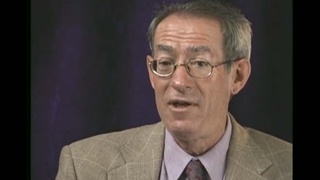Interviews
Lack of support from fellow Nikkei lawyers during the war
My question is—we had a lot of very intelligent Nikkei lawyers at that time—could they have gotten their heads together and said, “Why don’t we, everybody, file a writ of habeas corpus?” A hundred thousand of us or something. Now, that was a constitutional right of everybody. Why didn’t they [the Nikkei attorneys and Nisei leadership] do that?
I think there was a power movement behind this that said, “No, let’s show we are good, loyal, quiet Americans, and do what Big Brother says. Besides, they’re threatening us.” And some people do say, “Oh, yes, they threatened us.” That they would forcibly remove us, which meant at the point of a bayonet, maybe. But as I see the records, that would not have happened.
So I wish now that we had been more mature, and more of us were old enough and more aware of our legal rights; so that had we, all of us, filed a writ of habeas corpus, that would have tied up the courts. They couldn’t have dared to move us out. Mitsuye Endo1 filed a writ of habeas corpus, but she was already in camp. See, it was too late. But had we had the wisdom at that time, I think it might have been avoided.
1. Mitsuye Endo, a Nisei, was a California state employee for the Department of Motor Vehicles. Endo, along with other Japanese American California state employees, were fired from their jobs. Prior to her dismissal, Endo, an American citizen, was subjected to biased questioning that incorrectly assumed that she held dual nationality status with the U.S. and Japan. On July 12, 1942, Attorney James Purcell and the JACL filed a habeas corpus petition with the San Francisco Federal District Court, charging that Endo was denied the right to work due to unlawful detention by the U.S. Army. Although the Endo case was dismissed, an appeal was filed, and in October 1944 the U.S. Supreme Court heard her case. On December 18, 1944, the Supreme Court unanimously ruled in favor of Endo, and ordered the release of Japanese Americans from concentration camps, beginning January 2, 1945.
Date: August 26, 1998
Location: Virginia, US
Interviewer: Darcie Iki, Mitchell Maki
Contributed by: Watase Media Arts Center, Japanese American National Museum










